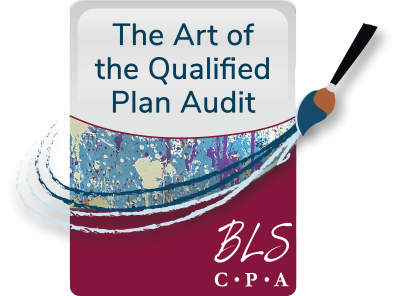Author: Maria T. Hurd, CPA
Amending a Plan’s Eligibility Provisions Could Delay a Financial Statement Audit Requirement
December 02, 2015
It may be counter-intuitive, but reducing the number of employees who are eligible to participate in a retirement plan could be the greater good in certain situations.
SOC 1 Reports and Limited Scope Audit Certifications Are Not the Same
November 05, 2015
Every year, at least one retirement plan service provider tells us that a plan qualifies for a limited scope audit because their company has an SOC 1 report.
Using Service Organization Control (SOC) 1 Reports to Reduce Audit Testing
October 09, 2015
Type 1 SOC 1 reports provide plan auditors with an evaluation of the adequacy of the design and implementation of controls
Risk Assessment for Taft-Hartley Health and Welfare Plan Claim Payments
October 08, 2015
In considering the completeness and accuracy of the benefit payment expense in Taft-Hartley health and welfare (H&W) plan financial statements, an auditor must consider what can go wrong.
Auditing Eligibility for Claim Payments in Taft-Hartley Health and Welfare Plans
October 07, 2015
When auditing claim payments, auditors must take into consideration whether:
Taft- Hartley Plan Payroll Audits
October 05, 2015
BLS understands the importance that payroll audits play in the annual audit of Taft-Hartley plans’ financial statements.
Case Closed! Re-Audit of Rejected 5500 Filings Accepted
October 01, 2015
In May 2015, the U.S. Department of Labor’s Employee Benefit Security Administration (EBSA) published the results of its assessment of the quality of retirement plan audits.
AU Section 315 – Communications Between Predecessor and Successor Auditors
September 24, 2015
When an auditor is considering accepting an engagement to audit financial statements and/or after a new auditor has been engaged to audit financial statements that have been audited by another firm in previous years,
Auditors’ Tests of Beginning Balances When a Small Plan Becomes a Large Plan
August 27, 2015
Contrary to popular belief, the audit procedures for a first-time audit of a previously small plan are not limited to the retirement plan’s financial activity for the year under audit.
The Special 15-Year 403(b) Catch-Up Contribution: How does it really work?
August 06, 2015
The amount available under the 15-year catch-up provision is based on the number of years of service and the total contributions previously made.







